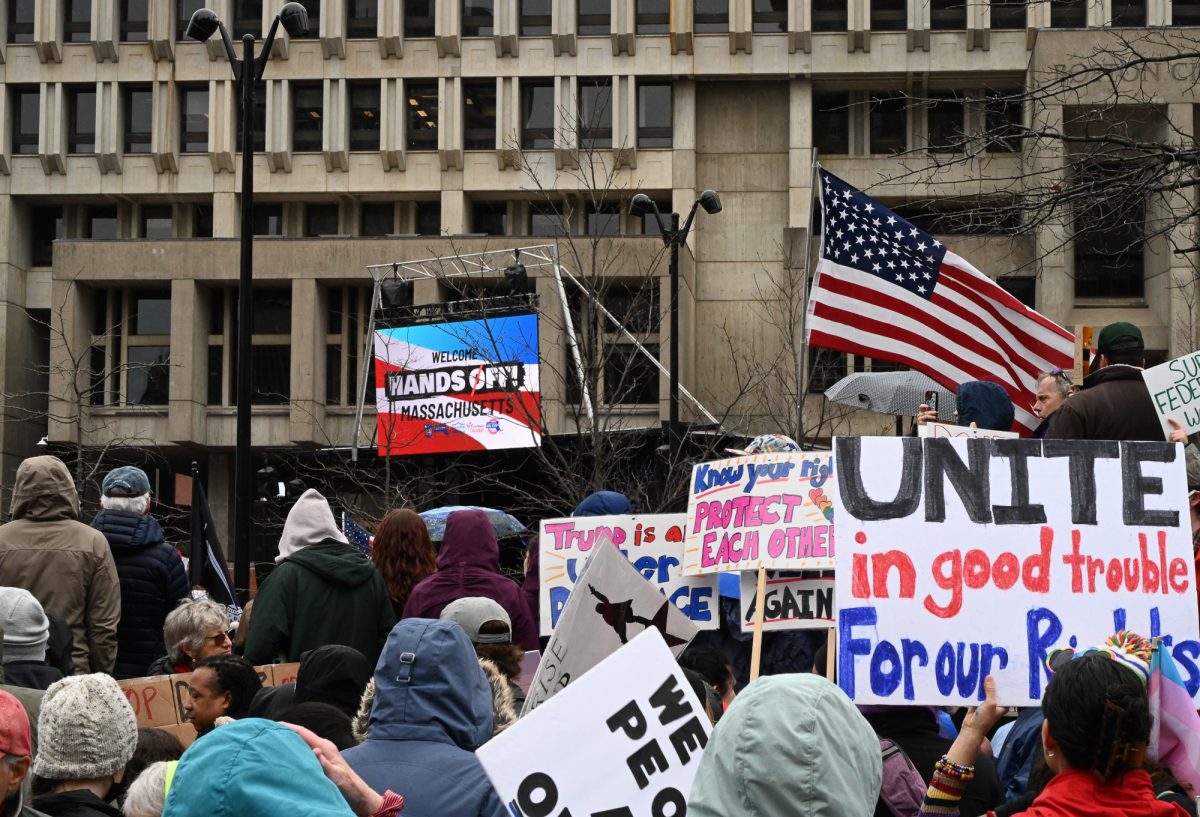The sound of sixteen Sabar drums pulsed throughout Boston University’s Sargent College of Health and Rehabilitation Sciences, as Rambax, a Senegalese drum ensemble from the Massachusetts Institute of Technology, communicated the rhythm of Afro-Islamic culture.
Nearly 70 attendees gathered to watch the performance by Rambax and the accompanying panel discussion Monday night. The night was hosted by the American Islamic Congress’ Boston Muslim Interfaith Council to celebrate and educate about Africa’s rich Islamic culture, Northeastern University student Khalid Nouri Luhamidiya said.
‘The subject matter we’re dealing with would require volumes of depth,’ Luhamidiya said. ‘Tonight’s just a taste.’
The discussion and performance was the first in the American Islamic Congress’s series on Muslim diversity that will culminate in the Boston Bazaar, a multicultural fair at the Cambridge Community Center March 29. Boston Foundation Grant, Facing History, the Unitarian Universalist Service Committee and the World Boston sponsored the series.
In the wake of 9/11 and Sunni-Shiite sectarianism in Iraq, Luhamidiya said it’s important to gain a greater perception of Islam.
‘As a Muslim, there’s more to the story than that,’ Luhamidiya said.
BU African Language Program Director Fallou Ngom said the Senegalese people ‘Africanized’ Islam to better relate to native cultures and to develop a sense of community. Islamic inspired philosophies emphasize human relationships, Ngom said.
‘To speak to one another, to know one another, to be useful to one another – that’s life,’ Ngom said.
This blend of religion and culture can also be found in other African countries such as Sudan, Boston College professor Khalid Kodi said.’ Kodi’s artwork incorporates aspects of Sudanese daily life and uses their customs and images to reflect political conflicts, he said.’ ‘
If anything, these religious and cultural traditions are a source of empowerment for African Muslims because they offer an outlet for spiritual perfection, Ngom said.’
Kodi said the beauty of Darfurian customs allowed him to see the region’s people as a productive and humanized people, rather than just victims.
Today, extreme religious views exported from Saudi Arabia, tyrannical political regimes and secularism, threaten Africa’s homegrown Islam, panelists said.
The panelists said they were confident Afro-Islamic cultures will be able to aid conflicts and problems in the region.
‘You have to give time to time,’ Suffolk University graduate student Moctar Sakho, a native of Mauritania who sat on the panel, said in regards to his hope for cultural prevalence of Islam in Africa.’
Attendee Bettina Kolker said she was introduced to Muslim culture through her work in the Peace Corps and Doctors Without Borders.
‘I hope to get a bit more of that tonight,’ Kolker said before the performance.
University of Massachusetts Boston student Lydia Yemane said she enjoyed the vibrant African sound.
‘It was great getting everyone to get up and participate,’ Yemane, an Ethiopian native, said.’
Rambax’s leader, Lamine Tour’eacute; of Senegal, encouraged the audience to rise from their seats at the end of the night with dancing and a call to cooperate in his native language Wolof.
‘We have to all live together,’ Tour’eacute; said.






















































































































